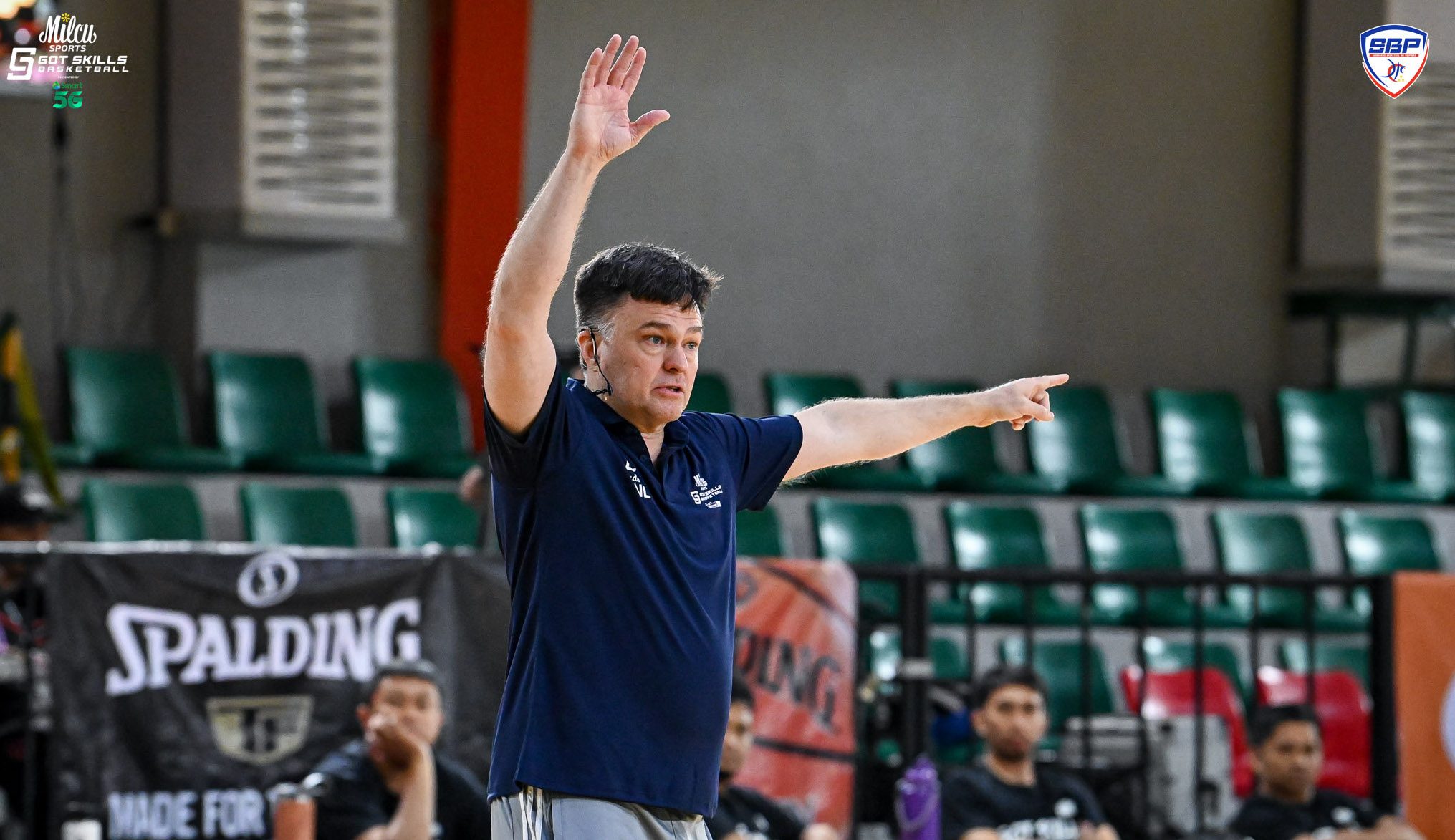Physical Address
304 North Cardinal St.
Dorchester Center, MA 02124
Physical Address
304 North Cardinal St.
Dorchester Center, MA 02124

MANILA, Philippines – Alex Compton, a former PBA coach and national team mentor, saw firsthand how basketball grassroots programs work.
From the United States to the Philippines, he witnessed how many parents grappled, in different ways, with their children’s athletic pursuits.
Compton, himself, dealt with such dilemmas.
“I went through it as a dad, I realized that I have not always acted in a way that is fair to my kids in terms of where they’re at developmentally,” shared Compton.
The Philippine-born American mentor admits that his competitive nature once got in the way of his children’s athletic development.
“You shouldn’t hold a seven-year-old accountable the same way that you would a 17-year-old. And sometimes, because I would be thinking of my end goal in mind, I would hold them accountable to the standard of the 17-year-old when they’re seven,” Compton said.
Along with his friend and former Philippine Basketball League (PBL) player Kevin Dalafu, Compton co-authored a book, Wisest Learners: Guiding Your Child’s Athletic Journey, with the idea of helping parents create smart choices for their children in sports.
The book is part of a Wisest Learners series, which hopes to shape the children’s future through different aspects of life.
Wallace Panlilio, who was the author of another book, Wisest Learners for Parents, suggested the book’s premise to Compton and Dalafu, tapping on the two coaches’ familiarity in youth sports.
The book took almost two years to write, including extensive research and numerous setbacks in their writing processes, which Compton said led them “to rewrite and rewrite” numerous chapters.
In the end, Compton and Dalafu wrapped up the guide as a book reflective of their personal experiences, struggles, and learnings, as both parents and coaches.
“If I had a book that could help me in my own journey, what would I want? And I think that’s what we were hopefully able to create for parents, is meeting that gap of all the information out there, kind of consolidate it where it’s something that they can take and apply as they guide their children’s athletic journey,” Dalafu, who has been friends with Compton for almost two decades, said.
“We look to relay a deep understanding of our roles as parents and coaches, not just on the court, but also in life. We love our kids, as all parents do. So we need to harness that love [to create] smart choices in guiding them,” Compton added.
Having coached professional basketball for 12 years in the Philippines, Compton knew parents are always at a crossroads in their children’s athletic development and potential varsity careers.
“I saw them all. I saw parents struggle to understand their children’s wants in terms of sports, so it was kind of an experience parents know well,” Compton said.
“As players, as coaches, as fathers, and as organizers, we’ve been in the youth sports games for decades. Parents wrestle with their choices. We use that as inspiration to help them really raise their kids with some best practices from research and findings about this topic,” Compton said.
The book also gave the coaches-turned-authors some new perspectives on life and made them realize their shortcomings as parents.
“So working through this book, understanding more about applying fair standards and fair practices that are age-specific appropriately, was one of the many things particularly helpful for me.”
On the other hand, Dalafu acknowledged that mistakes are part of any parent’s journey. He reiterated that children and parents should see these as learning experiences, and treat raising an athlete as a journey.
“I would say that my passion and the love that I have for my children doesn’t always match the fruit of what that looks like,” he said.
“There’s been a lot of, as we call them, mistakes. But I like to call them learnings because I’ve learned from those. And knowing that life isn’t black and white and you make a mistake, it’s done,” Dalafu added.
In the book, Compton and Dalafu emphasized the importance of making oneself accountable, and not letting external factors determine their focus.
The authors believe parents and their children should have an “internal locus of control,” especially in competitive settings.
They noted how parents should adapt to their children’s athletic needs and understand a child’s own growth, pace, and development.
“We need to teach them that they can have more of an internal locus of control, meaning they’re accountable for their own actions, and they should think first about what they’re supposed to do and not focus on what others are supposed to do,” Compton explained, adding that this is especially crucial in coaching.
Ultimately, the coaches hope the book allows parents to understand their roles in their children’s journeys, particularly in a sporting environment.
For Compton, understanding responsibilities inside any court and outside of it remained an important facet of parenthood.
“I think parents sometimes don’t always understand their roles in youth sports, and then therefore they don’t understand their responsibility in those moments,” he said.
“So a parent’s role when they’re a fan is to cheer, encourage, and love their child. It’s not to coach on the court. It’s not to berate. It’s not to yell at other players. It’s not to yell at the ref, and it’s not to yell at the coach,” the former Alaska Aces head coach added.
“They have to understand their role, and then once they understand their role and the responsibilities within that, we may be looking at a brighter future for sports.” – Rappler.com